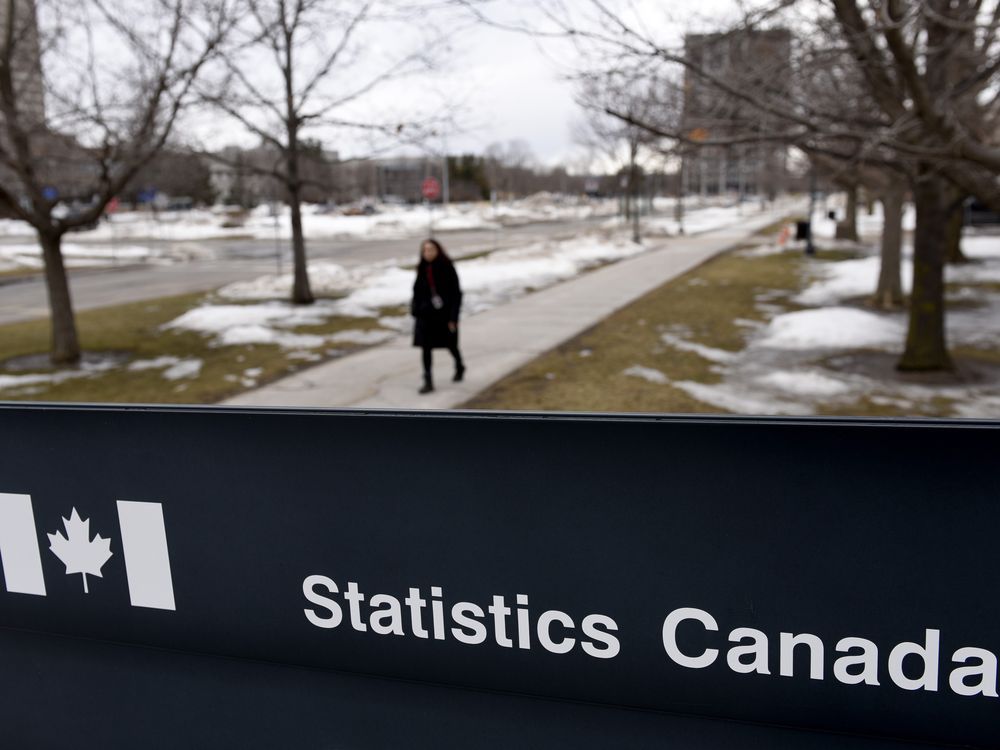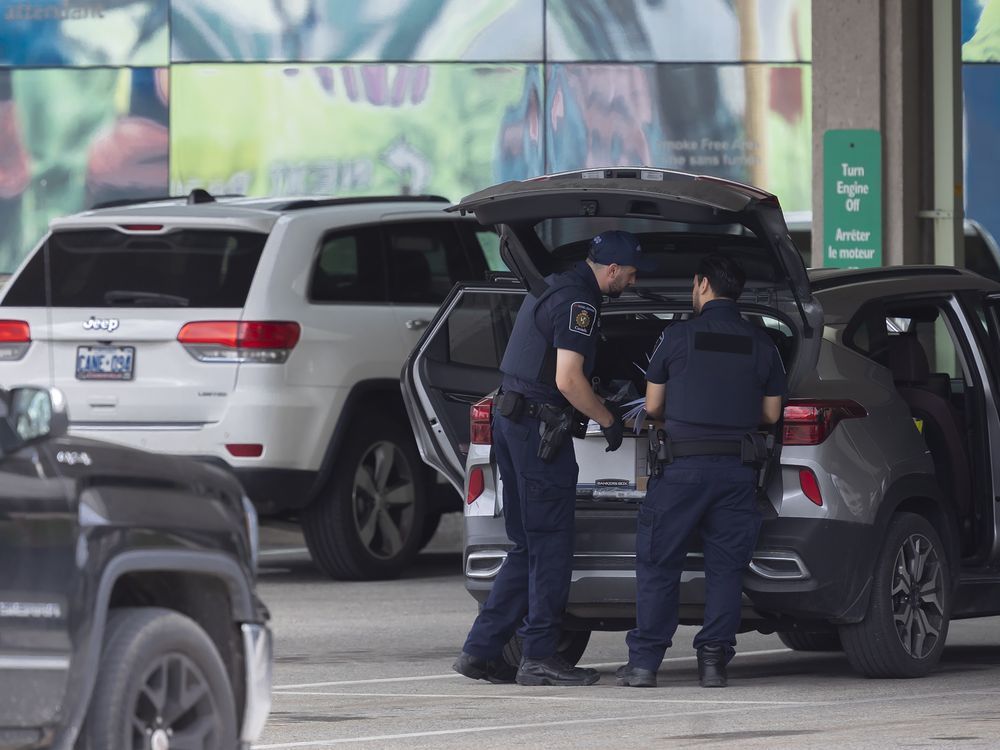Dying outside in the winter is a fate that shouldn't befall anybody in a community as wealthy as Ottawa. As a city councillor days, this is on all of us.
Published Jan 10, 2025 • Last updated 0 minutes ago • 3 minute read

If you insist on being technically accurate, no homeless man froze to death in Ottawa this week. The official information released so far indicates he was found at the corner of Cooper and Elgin Streets in cardiac arrest, was brought to the hospital and died there.
A distinction without a difference.
Whatever a coroner’s inquiry might reveal about what killed this man, the point remains that, as Somerset Coun. Ariel Troster said, “this failure is on all of us.”
Advertisement 2
THIS CONTENT IS RESERVED FOR SUBSCRIBERS ONLY
Subscribe now to read the latest news in your city and across Canada.
- Exclusive articles from Elizabeth Payne, David Pugliese, Andrew Duffy, Bruce Deachman and others. Plus, food reviews and event listings in the weekly newsletter, Ottawa, Out of Office.
- Unlimited online access to Ottawa Citizen and 15 news sites with one account.
- Ottawa Citizen ePaper, an electronic replica of the print edition to view on any device, share and comment on.
- Daily puzzles, including the New York Times Crossword.
- Support local journalism.
SUBSCRIBE TO UNLOCK MORE ARTICLES
Subscribe now to read the latest news in your city and across Canada.
- Exclusive articles from Elizabeth Payne, David Pugliese, Andrew Duffy, Bruce Deachman and others. Plus, food reviews and event listings in the weekly newsletter, Ottawa, Out of Office.
- Unlimited online access to Ottawa Citizen and 15 news sites with one account.
- Ottawa Citizen ePaper, an electronic replica of the print edition to view on any device, share and comment on.
- Daily puzzles, including the New York Times Crossword.
- Support local journalism.
REGISTER / SIGN IN TO UNLOCK MORE ARTICLES
Create an account or sign in to continue with your reading experience.
- Access articles from across Canada with one account.
- Share your thoughts and join the conversation in the comments.
- Enjoy additional articles per month.
- Get email updates from your favourite authors.
THIS ARTICLE IS FREE TO READ REGISTER TO UNLOCK.
Create an account or sign in to continue with your reading experience.
- Access articles from across Canada with one account
- Share your thoughts and join the conversation in the comments
- Enjoy additional articles per month
- Get email updates from your favourite authors
Sign In or Create an Account
or
Article content
The temperature that night dipped to -15 C. The street corner where he was found is less than 300 metres from city hall — a heated, publicly owned building that’s not especially busy at night.
In the late 1990s, in a charming village on the bank of the St. Lawrence River east of Quebec City, I and a dozen or so other people got stuck overnight on a stretch of road just off the Trans-Canada Highway in a nasty winter storm, unable to go anywhere for fear that we’d get disoriented in the blizzard and die of exposure. We stayed in our cars, engines running.
One young man, François, was alone and fell asleep in his idling vehicle. I was the one who found his body in his snow-encrusted car some 36 hours later. The memory of checking for a pulse, a futile gesture that I did anyway because I was told to do so in First-Aid training, is seared into my mind.
François did not freeze to death. He died of carbon monoxide poisoning, then his body froze. Another distinction without a difference.
The reason I’m telling you this is because after the coroner’s inquest into his death, several important changes were made to the way public works crews deal with rescuing people stuck in snowstorms, so that future deaths like his could be avoided.
Advertisement 3
Article content
This is what societies do. When events contribute to a death that could have been prevented, the proper answer is to figure out how we can improve things so preventable deaths are, indeed, prevented in the future.
Dying outside in the winter is a fate that should befall nobody in a community as wealthy as ours. I agree with Troster that this week’s death is on all of us.
I don’t have the perfect answer any more than you do. In the immediate, we should absolutely find a way to provide shelter to everyone who needs it when the temperature is below a certain level. Use strip malls or under-used office buildings if necessary. These buildings aren’t made for habitation, but we’re talking life-saving rescue here. Not lifestyle.
Medium- and long-term solutions exist. We know this because some cities have succeeded in reducing chronic homelessness to the point where it’s not considered a problem anymore.
A coroner’s inquiry is the perfect opportunity to have the sort of debate we need, with important contributions from experts and people with lived experience. It can lead to a real and effective plan to end chronic homelessness in Ottawa and prevent deaths that are preventable.
Advertisement 4
Article content
Instead, we have been moving in the wrong direction. The numbers of unhoused people in our city continue to grow. The latest point-in-time count, performed last October, shows 2,952 people without a roof of their own in Ottawa, up from 2,612 the last time this count was done, in 2021. That’s an increase of 13 per cent in three years.
Ottawa has already declared homelessness to be an emergency. It was the first city in Canada to make such a declaration in 2020, which was admirable leadership. But then not enough progress was made. It’s time to move beyond declarations, past patchwork measures without proper budgets or implementation plans. In short, it’s time to take this emergency seriously and deal with it.
I’m not suggesting it will be easy. But in principle it is quite simple: We can’t look away while people who have no home to call their own freeze to death on our streets. We can, and must, do better.
Brigitte Pellerin (they/them) is an Ottawa writer.
Recommended from Editorial
-

Deachman: Is there Christmas if you're homeless in Ottawa?
-

Deachman: 'You can't be here. You need to leave' too often what homeless man hears
Article content
.png)
 3 hours ago
9
3 hours ago
9




































 Bengali (BD) ·
Bengali (BD) ·  English (US) ·
English (US) ·